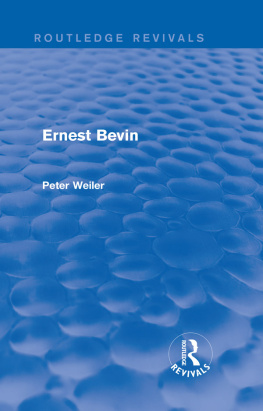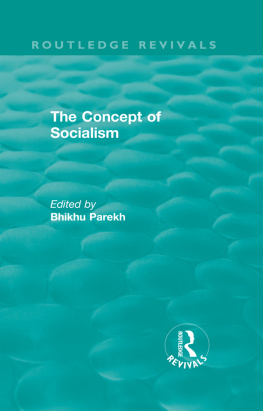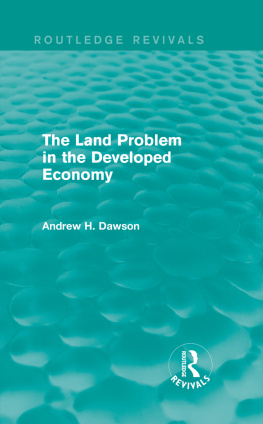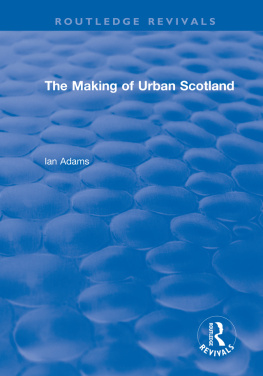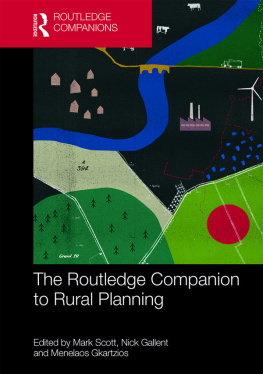Routledge Revivals
Rural Land-Use Planning in Developed Nations
This edited collection, first published in 1989, provides a detailed analysis of rural land-use policies on a country-specific basis. Case studies include analyses of planning and legislation in Britain, The Netherlands, Japan, the U.S.A. and Australia. Alongside a comprehensive overview of the concept and application of rural land use from Paul Cloke, environment issues, resource management and the role of central governments and topics under discussion throughout. At an international level, this title will of particular interest to students of rural geography and environmental planning.
Rural Land-Use Planning in Developed Nations
Edited by
Paul Cloke
First published in 1989
by Unwin Hyman Ltd
This edition first published in 2013 by Routledge
2 Park Square, Milton Park, Abingdon, Oxon, OX14 4RN
Simultaneously published in the USA and Canada
by Routledge
711 Third Avenue, New York, NY 10017
Routledge is an imprint of the Taylor & Francis Group, an informa business
1989 Paul Cloke and contributors
All rights reserved. No part of this book may be reprinted or reproduced or utilised in any form or by any electronic, mechanical, or other means, now known or hereafter invented, including photocopying and recording, or in any information storage or retrieval system, without permission in writing from the publishers.
Publishers Note
The publisher has gone to great lengths to ensure the quality of this reprint but points out that some imperfections in the original copies may be apparent.
Disclaimer
The publisher has made every effort to trace copyright holders and welcomes correspondence from those they have been unable to contact.
A Library of Congress record exists under LC control number: 88016973
ISBN 13: 978-0-415-71566-9 (hbk)
ISBN 13: 978-1-315-88057-0 (ebk)
Rural Land-Use Planning in Developed Nations
edited by
Paul J. Cloke
London
UNWIN HYMAN
Boston Sydney Wellington
P. J. Cloke and contributors, 1989
This book is copyright under the Berne Convention. No reproduction without permission. All rights reserved.
Published by the Academic Division of
Unwin Hyman Ltd
15/17 Broadwick Street, London W1V 3FP, UK
Unwin Hyman Inc.,
8 Winchester Place, Winchester, Mass. 01890, USA
Allen & Unwin (Australia) Ltd,
8 Napier Street, North Sydney, NSW 2060, Australia
Allen & Unwin (New Zealand) Ltd in association with the Port Nicholson Press Ltd,
60 Cambridge Terrace, Wellington, New Zealand
First published in 1989
British Library Cataloguing in Publication Data
Rural land-use planning in developed nations.
1. Developed countries. Rural regions. Land use. Planning
I. Cloke, Paul J.
333.7617091722
ISBN 0047110252
Library of Congress Cataloging-in-Publication Data
Rural land-use planning in developed nations / edited by Paul J. Cloke.
p. cm.
Bibliography: p.
Includes index.
ISBN 0047110252
1. Land use, RuralPlanning. 1. Cloke, Paul J.
HD108.6.R87 1988
333.7617dc19
88-16973 CIP
Typeset in 10 on 11 point Bembo and printed in Great Britain by Billing and Sons, Worcester
Acknowledgements
The editor would like to offer special thanks to the following: Roger Jones of Unwin Hyman for his sustained support over a number of publishing ventures; Maureen Hunwicks, whose skills of speedy efficiency have been so vital in producing manuscripts; Philip Bell, without whom conversation in Lampeter about rural planning would mean talking to yourself; our friends, Caroline and Philip Swain, Ros and Mike Scriven, and Gwyn and George Pegram, who have offered strong support to the Cloke family in recent times; and lastly Viv, Elizabeth and William for their constant love and patience.
PJC
Lampeter
March 1988
Contents
Paul Cloke
Paul Cloke
Leo M. van den Berg
John Aitchison
Brian J. Woodruffe
Michael Hebbert
Thomas L. Daniels, Mark B. Lapping &John W. Keller
Christopher R. Bryant
Geoffrey T. McDonald
Warren Moran
Paul Cloke
PAUL CLOKE
Rural land is regarded as important for a number of reasons. It represents the space and resource base for timber and food production, and so becomes an essential component in the political discourse over the strategic need for agricultural self-sufficiency, and over the economic necessity in the case of some nations to reproduce an export capacity in agricultural produce under rapidly changing trade conditions. It also comprises a major spatial constituency for outdoor recreation and is therefore subject to the necessary discussions about access, facility-provision and management which accompany both multiple land use and specific recreational schemes on rural land. Recreation is in turn predicated on landscape quality (at various scales) and often also on the factor of heritage which is attributed to the rural environment, again both in part and as a whole. Recognition of the value of landscape in its heritage context and in ecological terms has given rise to an expanding interest in the conservation of rural land and landscape, whereby an attempt is made to express a format of common interest in maintaining particularly threatened or precious elements. Conservation has become important, not only in deep rural areas but also on the urban fringe. Paradoxically in these areas of conflict over the transfer of rural land to urban use, often for housing development, the influx of adventitious rural residents gives a boost to the conservation cause, which has been characterized (somewhat cruelly) as groups of people wanting to ensure that they are the last to be permitted to move into and thereby spoil these rural environments.
These various functions of rural land are potentially conflicting, but not inevitably so. The scale and distribution of rural land in different nations is sufficiently varied that caution is necessary in any generalized view of rural land-use conflict. There does, however, seem to be mounting evidence that the scientific and technical changes in the second half of the 20th century, when allied with the changing nature of world trade and economy, do constitute prompters of accelerating conflict. For example, changes in agricultural production have made significant impacts on rural landscapes both visually and in terms of downstream pollution. Mechanization has been accompanied by the economic desirability of large improved fields, unencumbered with landscape features such as hedges, trees, wetland areas, and so on. Chemical fertilizers, herbicides, pesticides, all necessary for modern agricultural production, have turned some parts of rural land into what Goldsmith & Hildyard (1986) have termed an industrial wasteland. Neither is it those industries traditionally viewed as rural which are the only polluters, as emissions from urban-based power stations contributing to international flows of acid rain on rural land have shown (Park 1987). It is the economic imperative of increased productivity which has led to the low priority given to some parts of the rural land base.




